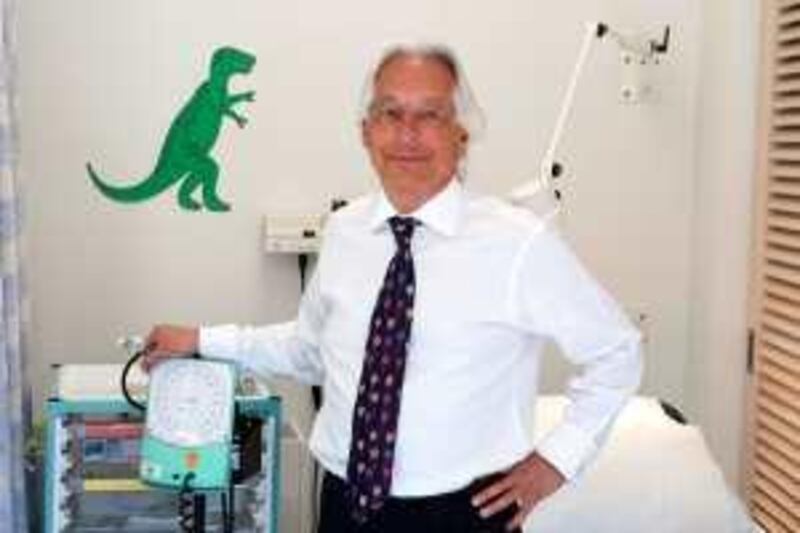A scheme that brings foreign specialists to patients, saving them having to travel overseas, costs millions each year, but experts insist it is a price worth paying Since the Ministry of Health's visiting consultant programme started 20 years ago, it has helped thousands of patients receive what is often life-saving surgery.
Specialist doctors from some of the world's best institutions - including Johns Hopkins Hospital and the Cleveland Clinic in the US, and Great Ormond Street Hospital in London - have come to help patients with everything from eye problems to kidney ailments, providing skilled treatment that would otherwise be unavailable in the Emirates. The scheme, which costs about Dh10 million a year, is cheaper and less disruptive than sending patients abroad, according to Dr Hani El-Solh, director of the programme.
He said the UAE's small population means the cost of specialist centres, which would see only a handful of patients a year, is hard to justify. As well as the cost of building such units, they have to be kept up to date, both in terms of equipment and the staff who must keep abreast of the latest techniques and research. "For the price of sending one patient and a family member abroad, we can bring a doctor here to do 12 or 15 surgeries," said Dr El-Solh.
"When we bring physicians here, our doctors are able to get hands-on learning experiences. If we sent them abroad they would only be able to observe. It benefits both the medical staff and the patients." The ministry lines up a number of cases before flying in a specialist to do the diagnosis or surgery. Most patients are in the northern Emirates, where the ministry is in full control of health care. Abu Dhabi and Dubai, by contrast, have their own authorities.
Emiratis are given priority because they are legally entitled to free health care. Qualifying expatriates pay a fee to the hospital for the treatment, either from their own pocket or from their health insurer. When a patient list is drawn up, a doctor, and sometimes a small team, is flown in and given a daily allowance, Dr El-Solh said. Dr Richard Trompeter, who specialises in children's kidney aliments, has been performing surgeries in the UAE for 20 years.
He worked as a British National Health Service consultant at Great Ormond Street Hospital and is now an honorary consultant at the Royal Free Hospital, also in London. Since he began visiting the UAE he has witnessed huge advances in its medical services and has seen the visiting consultants programme go from strength to strength. "Many of the doctors in the UAE, by virtue of the fact that the population base is small, will not have had the global experience to offer patients because they haven't seen the cases in order to generate that experience.
"It isn't that these services aren't good or that it can't cope, it's simply that you have to have had the opportunity to see patients with hundreds of different conditions in order to recognise things sometimes." Dr Trompeter said the programme offered visiting consultants "exposure to many illnesses and conditions no longer prevalent in countries in Europe and the US". Some genetic diseases, for example, are rare in these places.
One of the biggest challenges for the programme is assuring patients they will receive follow-up treatment even if they chose the visiting physician option over travelling overseas for care. According to Dr El-Solh, the doctors return a couple of times a year and are always available by telephone or e-mail. He noted that there are patients who have grown accustomed to being "medical tourists" when they need a doctor's attention and are reluctant to give it up. "Patients want to have a trip to Europe and do other things while they are there, the touristy things," he said. "[But that attitude] will change, because it has to, in time."
Almost 2,000 patients were sent abroad between 2005 and 2007, according to the ministry. Most went to Germany, with Britain and the US also common destinations. Building links between the visiting doctors and their local counterparts has also been a challenge. "Trust between doctors is also important," he said. "It took time for the doctors here to stop feeling like they were being evaluated and judged on their performance and facilities.
"Now this is solved because they meet the visiting consultants two or three times a year and build relationships with them. They can call on them if they need advice or assistance. This is a huge benefit." @Email:munderwood@thenational.ae





